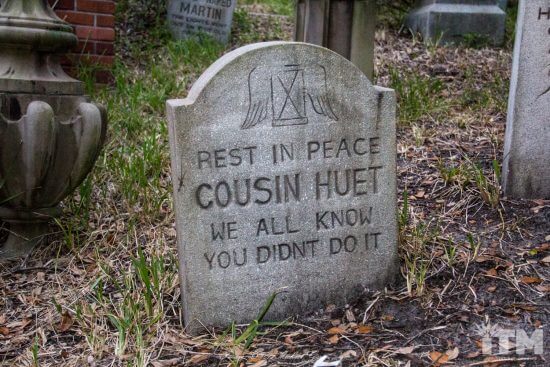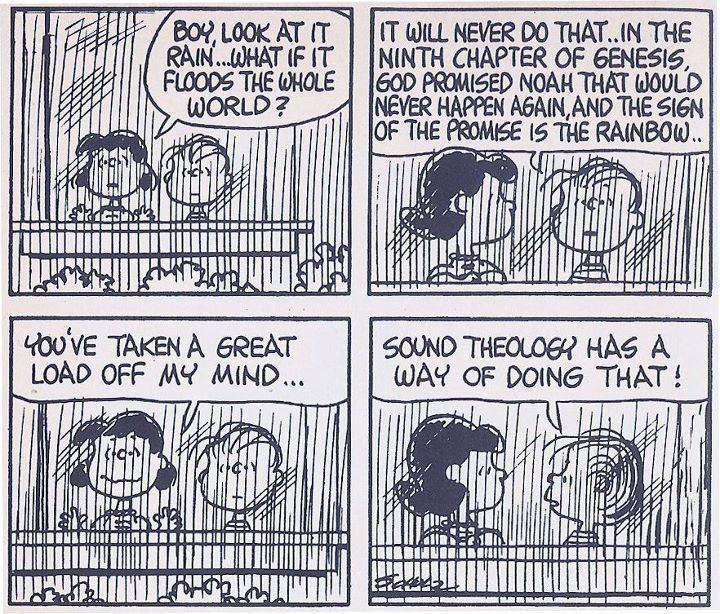1 Thessalonians Sermon Series
Standing Firm: Foundational Doctrine For New Believers
Standing Firm in Our Testimony
1 Thessalonians 5:12-28
Introduction
Clovis Chappell, a minister from a century back, used to tell the story of two steamboats. They left Memphis about the same time, traveling down the Mississippi River to New Orleans. As they traveled side by side, sailors from one vessel made a few remarks about the snail’s pace of the other. Challenges were made and the race began.
Competition became vicious as the two boats roared through the deep South. One boat began falling behind because it did not have enough fuel. There had been plenty of coal for the trip, but not enough for a race. As the boat dropped behind, an enterprising young sailor took some of the ship’s cargo and tossed it into the ovens. When the sailors saw that the supplies burned as well as the coal, they fueled their boat with the material they had been assigned to transport. They ended up winning the race, but burned their cargo.[1]
God has entrusted cargo to us, too. Our job is to do our part in seeing that this cargo reaches its destination. When we forget what God has entrusted us to do – we sacrifice the end result for our distraction right now.
Prayer
Mutual Love Leads to Peace (vv. 12-13)
We ask you, brothers, to respect those who labor among you and are over you in the Lord and admonish you, 13 and to esteem them very highly in love because of their work. Be at peace among yourselves.
One thing that we see from other examples of where Paul went into a city for the express purpose of sharing the gospel, was that leaders would were established very early. They all received the teachings of Paul, Silas, and Timothy at the same time, and all were saved, at the most, three weeks. These new leaders did not have seminary educations or years of experience – they had all received Christ around the same time. But some, were shown to have the gift of leadership.[2]
In the church everyone is on the same level, but the Bible teaches that we all have separate gifts given to us by God, so each person is to serve according to the gift they have been given. Every team needs a Coach. Since the church is Thessalonica was very young, and Paul had to leave quickly (after three weeks) he knew leadership had to be established. Robertson says, “We need wise leadership today, but still more wise following. An army of captains and colonels never won a battle.”[3]
The church leader’s responsibility involves labor (doing something to the point of being tired and exhausted). An example is Moses “so wore himself out, that when he was finally persuaded to delegate some of his responsibilities, it took no less than seventy men to pick up the duties that he laid down (Exodus 18:13-26). In this book we see Paul himself often worked at his tent making all day and then evangelized and preached at night.”[4]
They are leaders “in the Lord” so their character is one of growing in the Lord and emphasizing that walk in their lives, they are people who do the difficult things, “admonish” is correction through instruction (no one like to tell someone they are off track or doing something sinful).
He encourages the young church to respect and esteem these leaders. That peace is held in place by mutual esteem and love that we all express for each other.
“He wants the officials to be highly regarded, and not dismissed as of no account. . . he wants them to be loved, and not thought of simply as the cold voice of authority.”[5] Paul also tells us why we should be respectful, and love them (love is a choice not a pit we fall into). It is not based on their personality, likeability, or what they have done for us – but “because of their work.”
Leaders can do things that cause those they lead to lose respect for them, they can lead in such a way that make it hard to love them, they can admonish those they lead in such a way that they are not esteemed – But Paul is saying that if there is to be peace amongst them – then the church must follow the leadership.
The peace that we are to have among ourselves comes directly from leaders doing the work of leadership, and the church doing the work of the church. If the leaders lord[6] their positions over people the people won’t follow, then you are a leader of yourself.
The church is a volunteer army; how you run a company is vastly different than how you run the church. If, the followers won’t follow and everyone fights for their own ways and opinions, then there is no peace and nothing gets done.
(v. 13) “Be at peace among yourselves” – the among yourselves is Paul emphasizing both the leaders and followers doing what is needed to have peace in the church. Leaders be good leaders, the best leaders you know how to be. Church, do what you are commanded by Christ to do, be about the work of the church. Both make the effort to keep the peace.
There is a similar dynamic mentioned in Ephesians 6:1-4 “Children, obey your parents in the Lord, for this is right. 2 “Honor your father and mother” (this is the first commandment with a promise), 3 “that it may go well with you and that you may live long in the land.” 4 Fathers, do not provoke your children to anger, but bring them up in the discipline and instruction of the Lord.” Fathers have the authority over their children, but they should still be gentle, kind, and loving – there is a long-term goal of them following the Lord.
Another translation says, “exasperate” to, “irritate and frustrate (someone) intensely.” When the father uses his authority in a way that leads the children to be irritated, frustrated, and provoked – that anger leads to rebellion. At that point the long-term goal of them following the “discipline and instruction of the Lord” is not being accomplished.
The long-term goal of the leader of the church is that people will grow in their walk with the Lord, etc. but if they provoke the church to anger, then this long-range goal is not accomplished.
Be Patient with Other Believers (vv. 14-15)
14 And we urge you, brothers, admonish the idle, encourage the fainthearted, help the weak, be patient with them all. 15 See that no one repays anyone evil for evil, but always seek to do good to one another and to everyone.
“Three groups seem to be reflected here: (1) those who had quit work, talking only of the Lord’s return, fanatics; (2) those who had lost heart because of some had died before that event; and (3) those who were morally weak, or those tempted toward immorality.”[7]
The “idle,” here refers to those who are disorderly, unbecoming behavior (after three weeks the early church already had people causing trouble and being disorderly). These are like soldiers who are out of step, the fanatics, meddlers, and loafers (4:11, 12; 5:12, 13; and cf. 2 Thessalonians 3:10).
The “fainthearted” could refer to those who needed comfort and were troubled because of the loss of their friends who had died in Christ (4:13), or confused about the return of Christ (5:1-11). They could be encouraged by what Paul has taught them so far in this book. But these people seem to be easily discouraged.
“help the weak” may be referencing “shrinking away from persecution (3:3-5), yielding to temptation to immorality (4:3-8),” or as Paul mentions in 1 Corinthians 8-10 could be referencing how they are exercising Christian liberty.[8]
(v. 15) In dealing with these challenging persons in the church, Paul says, “15 See that no one repays anyone evil for evil, but always seek to do good to one another and to everyone” – When Paul says this, it is intended for the entire church to enforce – everyone should see that anyone repays evil, and all should seek to do good to people inside and outside the church. It is wrong to leave all this to pastors and elders.
Also, not only are believers not to repay evil for evil, but to look out for the good of the other person, to see how they may benefit them, to help them. The example we are to follow is Christ’s; “He loved Judas just as much as He loved John. He loved Pilate just as much as He loved Peter.
He loved the man who spat on in His face just as much as He loved the woman who washed his feet with her tears. He loved the dying thief who went to paradise, and He loved the dying thief who cursed Him.”[9] Jesus did no evil to anyone, He repaid no evil for the evil shown toward Him.
Watch Your Relationship with the Lord (vv. 16-22)
16 Rejoice always[10], 17 pray without ceasing, 18 give thanks in all circumstances; for this is the will of God in Christ Jesus for you. 19 Do not quench the Spirit. 20 Do not despise prophecies, 21 but test everything; hold fast what is good. 22 Abstain from every form of evil.
The spiritual temperature of the Christian is maintained at a proper level by finding things to rejoice about, continually praying, and finding opportunities to give thanks! Paul says that if we will have this type of attitude, then that “is the will of God in Christ Jesus for you”
(v. 17) “pray without ceasing” – Doesn’t mean you are always talking. A way to think about this is to have a good friend in the room. When things need to be discussed, you talk, but the relationship sometimes is content to just be silent, yet you know that everything is good between the two of you.
Another example, is Nehemiah was given the opportunity to ask the Persian emperor for permission to go to the Promised Land to rebuild the walls in Jerusalem. Nehemiah 2:4-5 “Then the king said to me, “What are you requesting?” So I prayed to the God of heaven. 5 And I said to the king, “If it pleases the king, and if your servant has found favor in your sight, that you send me to Judah, to the city of my fathers’ graves, that I may rebuild it.” This was a short, “Lord help me” prayer.
Remember the church was experiencing persecution, and had lost loved ones because of this persecution. This is the opposite of what we see the Israelites doing in the book of Exodus, when they were murmuring (Exodus 16). So, in the darkest of times, “this is the will of God.”
The next section deals with balance. “Not quenching the Spirit” deals with spiritual gifts. Apparently, someone had been exercising their spiritual gifts in such a way that the leaders said, “nope, we are not going to allow that to happen,” therefore stopping someone from using their spiritual gifts and ministering to the church body. It was like throwing water on a ember.
It probably, had something to do with prophecies, “Those who were caught up in the idea of the Lord’s return evidently claimed a spirituality above that connected with preaching or prophesying”[11]
“Wherever God plants wheat, Satan sows his tares. Wherever God established His church, the devil erects a chapel. And so, too, wherever the Holy Spirit enables certain men to perform miracles of healing, the evil one distributes his “lying wonders.” And wherever the Paraclete brings a true prophet upon the scene, the deceiver presents his false prophet.”[12] You especially didn’t like the prophecy if you were a meddler, loafer, or a fanatic.
So, in order to make sure we don’t make a mistake we shut all prophesying down. Instead of just shutting things down, and therefore “quenching the Spirit,” the church should test everything (against the Scriptures). If it’s good then keep doing it, if it’s evil then abstain from it. They had to distinguish truth and error. Have fervor for the Lord, but also have common sense.
(v. 22) “Abstain from every form of evil.” – this is broad blanket verse that regardless of what it is in our life that may be contrary to the will of God, it should be taken out of our life.
Even with this short list (rejoicing, being thankful, praying, not repaying evil, etc.), it is impossible for the new believer to live the life that God requires in their own strength, Therefore, we must stay close to Jesus. John 15:4-5 says, “Abide in me, and I in you. As the branch cannot bear fruit by itself, unless it abides in the vine, neither can you, unless you abide in me. 5 I am the vine; you are the branches. Whoever abides in me and I in him, he it is that bears much fruit, for apart from me you can do nothing.”
God is Faithful (vv. 23-24)
23 Now may the God of peace himself sanctify you completely, and may your whole spirit and soul and body be kept blameless at the coming of our Lord Jesus Christ. 24 He who calls you is faithful; he will surely do it.
Sanctify means “the realization or progressive attainment of likeness to God or to God’s intention for men. It may be regarded both as a status conferred by divine grace and as goal to be aimed at.”[13]
Paul is saying that God is working in the life of the believer so that they are becoming more like Christ (here and now), and that his process will be completed when Christ returns. It is God who sanctifies the whole person, and the believer has a part in working in partnership with God in the process.
“From Acts we learn that sanctification depends on reception of the Holy Spirit. This implies turning away from the world (Acts 2:40), and presupposes forgiveness of sin (2:38; 26:18). More positively, reception of the Spirit confers power to perform miracles (2:43; 3:6; 4:12-16, etc.), moral power (4:31-37), and generally the courage to witness to Christ (2:32-36; 4:31; 5:32).”[14]
We also see that sanctification is your entire being, “whole spirit and soul and body.”
Conclusion
The story is told that Andrew Jackson’s boyhood friends just couldn’t understand how he became a famous general and then the President of the United States. They knew of other men who had greater talent but who never succeeded. One of Jackson’s friends said, “Why, Jim Brown, who lived right down the pike from Jackson, was not only smarter but he could throw Andy three times out of four in a wrestling match. But look where Andy is now.”
Another friend responded, “How did there happen to be a fourth time? Didn’t they usually say three times and out?” “Sure, they were supposed to, but not Andy. He would never admit he was beat—he would never stay ‘throwed.’ Jim Brown would get tired, and on the fourth try Andrew Jackson would throw him and be the winner.”
Picking up on that idea, someone has said, “The thing that counts is not how many times you are ‘throwed,’ but whether you are willing to stay ‘throwed.’”
The Christian life is a battle. Scripture often speaks of God’s children as soldiers, and we should not expect to have things always be calm and peaceful. The question is not whether we ever fail, but whether we get back up when we do. Proverbs 24:16 says, “For a just man falleth seven times, and riseth up again: but the wicked shall fall into mischief.”[15]
_________________________
[1] https://ministry127.com/resources/illustration/steamboat-race
[2] John F. Walvoord, The Thessalonian Epistles (Grand Rapids, Michigan; Dunham Publication, 1968) 90.
[3] Arnold E. Airhart, Beacon Bible Commentary, Volume 9 (Kansas City, Missouri; Beacon 494.
[4] John Phillips, Exploring 1 & 2 Thessalonians (Grand Rapids, Michigan; Kregel Publications, 2005) 139.
[5] Leon Morris, The First and Second Epistles to the Thessalonians (Grand Rapids, Michigan; WM B Eerdmans Publishing Co., 1959) 167.
[6] Matthew 20:25ff.
[7] Clifton Allen, The Broadman Bible Commentary, Volume 11 (Nashville, Tennessee; Broadman Press, 1971) 284.
[8] Robert L. Thomas, The Expositor’s Bible Commentary, Volume 11 (Grand Rapids, Michigan; Zondervan Publishing House, 1978) 289. Also see Romans 14:1-15:6; 1 Corinthians 8-10.
[9] Phillips, 144.
[10] Shortest verse in the Bible, in the New Testament Greek, Walvood, 95.
[11] Allen, 284.
[12] William Hendriksen, New Testament Commentary, Exposition of 1 & 2 Thessalonians (Grand Rapids, Michigan; Baker Book House, 1987) 140.
[13] George Arthur Buttrick, Dictionary Editor, The Interpreter’s Dictionary of the Bible Volume 4 (Nashville, Tennessee; Abingdon Press, 1980) 211.
[14] Buttrick, Dictionary, 211.
[15] https://ministry127.com/resources/illustration/get-up-again
 The picture that Paul gives us is as a thief moving around in the dark, then suddenly the lights are turned on, or the sun peaks over the horizon at dawn, and the thief is exposed. Believers are warned here to pay attention and to be ready.
The picture that Paul gives us is as a thief moving around in the dark, then suddenly the lights are turned on, or the sun peaks over the horizon at dawn, and the thief is exposed. Believers are warned here to pay attention and to be ready. (v. 8) “having put on the breastplate of faith and love, and for a helmet the hope of salvation”
(v. 8) “having put on the breastplate of faith and love, and for a helmet the hope of salvation” What about, In 2019 Disneyland shut down the Haunted Mansion because someone was seen dumping a powdery grey substance from one of the dune buggies. It was later determined to be the ashes of a loved one that wanted their remains spread at Disneyland and that was their favorite ride. What if our bodies are not whole?
What about, In 2019 Disneyland shut down the Haunted Mansion because someone was seen dumping a powdery grey substance from one of the dune buggies. It was later determined to be the ashes of a loved one that wanted their remains spread at Disneyland and that was their favorite ride. What if our bodies are not whole? “Within its protective casing, the caterpillar radically transforms its body, eventually emerging as a butterfly or moth. … First, the caterpillar digests itself, releasing enzymes to dissolve all of its tissues. If you were to cut open a cocoon or chrysalis at just the right time, caterpillar soup would ooze out.”
“Within its protective casing, the caterpillar radically transforms its body, eventually emerging as a butterfly or moth. … First, the caterpillar digests itself, releasing enzymes to dissolve all of its tissues. If you were to cut open a cocoon or chrysalis at just the right time, caterpillar soup would ooze out.” In Genesis 22:19 “After these things God tested Abraham and said to him, “Abraham!” And he said, “Here I am.” 2 He said, “Take your son, your only son Isaac, whom you love, and go to the land of Moriah, and offer him there as a burnt offering on one of the mountains of which I shall tell you.”
In Genesis 22:19 “After these things God tested Abraham and said to him, “Abraham!” And he said, “Here I am.” 2 He said, “Take your son, your only son Isaac, whom you love, and go to the land of Moriah, and offer him there as a burnt offering on one of the mountains of which I shall tell you.”